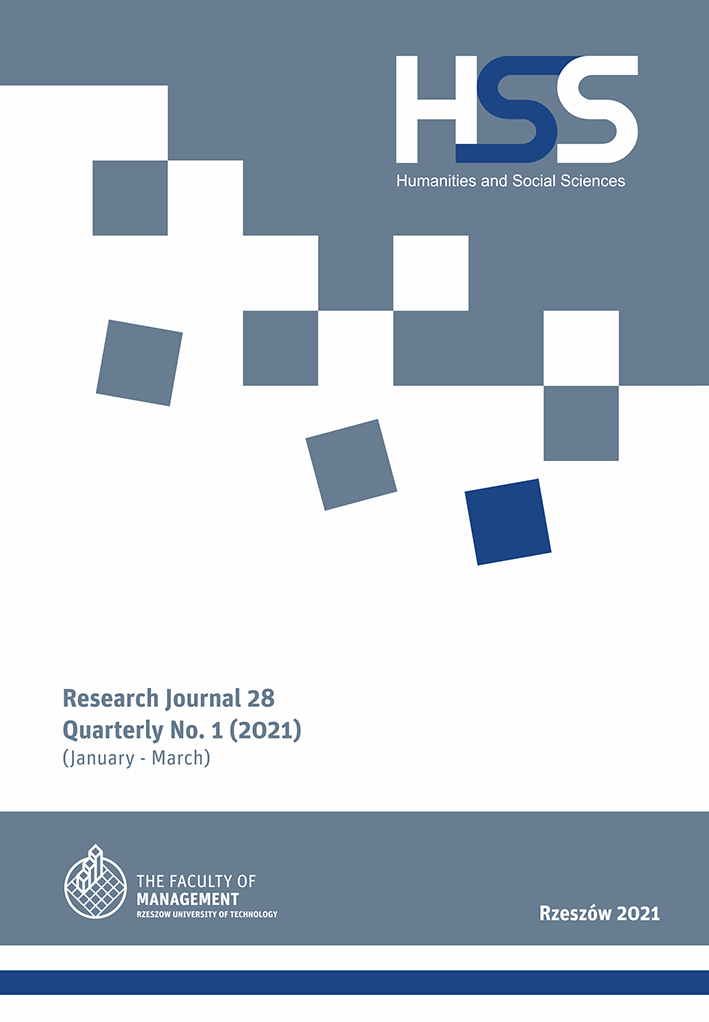Abstrakt
Social participation is most often perceived as a means of external cooperation between public authorities and citizens. It should be based on a common and consensual identification of problem issues and their resolution in a meaningful way through the exchange and justification of reasons, mutual education, and training and acquisition of civic competences. The basis of social participation in the local dimension is the use of citizens’ rights. The active attitude of citizens is an important guarantor in building a civic commune in which residents are not the object but the subject of public policy. Therefore, social participation favors building relations between self-government and citizens based on the principle of partnership and participation in local decision-making processes. The purpose of the article is to evaluate the activity and involvement of local administration in creating appropriate conditions for the active participation of citizens in the field of social participation. In order to achieve this goal, surveys were conducted among the inhabitants of four cities with poviat status in Podkarpackie Province, Poland, namely, Rzeszów, Krosno, Przemyśl, and Tarnobrzeg. The research has shown that the local community of Podkarpackie cities rarely uses the various forms of social participation offered to them by the local administration. This is why the administration’s activities should focus on making residents aware of the benefits of participation. Providing residents with relevant information on the principles, forms, or methods of participation may prejudge the quality of life in a given local government and the course of its development.
Bibliografia
Alexiu, T. M., Lazar, T. A., Baciu, E. L. (2011). Community participation and involvement in social actions, “Transylvanian Review of Administrative Sciences, Vol. 33.
Bradbury, J. A., Branch, K. M., Focht, W. (1999). Trust and public participation in risk policy issues [In:] Cvetkovich, G., Löfstedt, R., eds., Social Trust and the Management of Risk. Earthscan: London.
Chirenje, I. L., Giliba, R. A., Musamba, E. B. (2013). Local communities’ participation in decision-making processes through planning and budgeting in African countries. “Chinese
Journal of Population Resources and Environment” No. 1, Vol. 11.
Creighton, J. L. (2005). The Public Participation Handbook: Making Better Decisions through Citizen Involvement. San Francisco: Jossey-Bass.
Edelenbos, J. and Klijn, E. H. (2005). Managing Stakeholder Involvement in Decision-Making: A Comparative Analysis of Six Interactive Processes in the Netherlands. “Journal of Public
Administration Research and Theory”, Vol. 16.
Fishkin, J. S. (2009). When the People Speak. Deliberative Democracy and Public Consultation, New York: Oxford University Press.
Grzebyk M., Pierścieniak A., Pytko P. (2019). Administracja lokalna w procesie partycypacji społecznej (na przykładzie miast grodzkich w województwa podkarpackiego). „Studia z Polityki Publicznej” No. 3 (23).
Haruta, C., Radu B. (2010). Citizen participation in the decision making process at local and county levels in the Romanian public institutions. “Transylvanian Review of Administrative Sciences”, Vol. 31E.
Innes, J. E., Booher, D. E. (2004). Reframing public participation: strategies for the 21st century. “Planning Theory and Practice” No. 4, Vol. 5.
Irvin, R. A., Stansbury, J. (2004). Citizen Participation in Decision-Making: Is It Worth the effort. “Public Administration Review” No. 1, Vol. 64.
Kaczmarek, T. (2016). Administrative division of Poland – 25 years of experience during the systemic transformation. “EchoGéo”, Vol. 35. DOI: 10.4000/echogeo.14514
Kakumba, U., Nsingo, S. (2008). Citizen participation in local government and the process of rural development: the rhetoric and reality in Uganda. “Journal of Public Administration” No. 2, Vol. 43.
Kasymova, J. (2014). Analyzing Recent Citizen Participation Trends in Western New York: Comparing Citizen Engagement Promoted by Local Governments and Nonprofit Organizations. “Canadian Journal of Nonprofit and Social Economy Research” No. 2, Vol. 5.
Kasymova, J. T., Schachter, H. L. (2014). Bringing participatory tools to a different level.“Public Performance & Management Review” No. 3, Vol. 37. King, C., Feltey, K. M., Susel, B. O. (1998). The question of participation: Toward authentic public participation in public administration. “Public Administration Review” No. 4, Vol. 58.
McGann, A. (2006). The logic of democracy. Reconciling Equality. Deliberation and Minority Protection. Michigan: 115.
Michels A., De Graaf, L. (2010). Examining Citizen Participation: Local Participatory Policy Making and Democracy. “Local Government Studies” No. 4, Vol. 36. Organization for Economic Cooperation and Development, OECD, Engaging Citizens in Policy-Making: Information, Consultation and Public Participation. PUMA Policy Brief No. 10, July 2001.
Paul, S. (1987). Community Participation in Development Projects: the World Bank Experience. “World Bank Discussion Papers”, Vol. 6.
Pimbert, M. P., Wakeford, T. (2001). Overview – deliberative democracy and citizen empowerment [In:] Pimbert, M. P., Wakeford, T., eds., Deliberative Democracy and Citizen Empowerment, PLA Notes 40, IIED with the Commonwealth Foundation. ActionAid, DFID and Sida: London.
Roberts, N. (2004). Public Deliberation in an Age of Direct Citizen Participation. “The American Review of Public Administration” No. 4, Vol. 34.
Uche, O. A., Uche, I. B., Chukwu, N-N., Nwokeoma, B. N. (2019). Membership participation and sustainability of government-driven rural development projects in Abia state of Nigeria. “Transylvanian Review of Administrative Sciences”, Vol. 56E.
Wójcicki, M. (2013). Pojęcie, istota i formy partycypacji społecznej w procesie planowania przestrzennego. „Rozwój Regionalny i Polityka Regionalna”, Vol. 24.
www.cbos.pl


